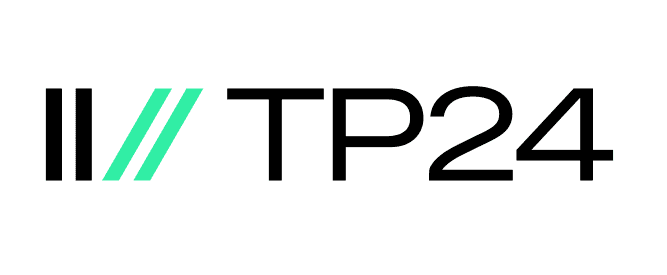Best Business Car Loan Interest Rates With Fast Approval
Securing competitive interest rates for your business car is simple with our LendIQ™ system, which finds your ideal vehicle finance from 80+ lenders. Get funded for your business vehicle in as little as 4 hours.

Your Approval in 3 Clear Steps
Apply in 2 Minutes
Fill out a quick questionnaire so we can understand your unique situation. This is 100% Free.
Find Your Best Option
LendIQ™ assesses 80+ lenders for you and gets you the best deal with the highest first application approval chance. This process won’t affect your credit score.

Your Funds in 4 Hours
If the product suits you, confirm by phone and get approved and funded in as little as 4 hours.
Why Compare Business Loans with Lend?
Our smart technology and expert team save you time, protect your credit score, and find you a great deal on business finance.
Trusted by Aussies
With over 50,000 loans funded and an 'Excellent' 4.8/5 rating on Reviews.io, we are one of Australia's most trusted platforms for securing business finance.
Free to use
Our comparison service is 100% free. Our mission is to help Aussie businesses find their lowest interest rates.
Safe & secure
Our process does not affect your credit score at all. It's safe to compare with us.
Business Loan Comparison
Compare competitive business loan rates in Australia from over 80 lenders. Our data is constantly refreshed, and we display all the business loans on our database (we’re not paid by lenders to appear). Get the loan you want sooner by checking your personalised rates from our lender panel. Simply hit ‘Compare Now’ and our system will do the work for you. Use this tool to loan compare and find a great deal.
$
No results found for the selected filters.
A Simple Solution for Vehicle Finance
Navigating dozens of lenders is time-consuming. Our technology simplifies the process, delivering the right loan structure with the speed and certainty you can rely on.
50,000+
Loans Funded
4.8/5 ⭐️
Excellent on reviews.io
The industry average approval rate for a small business applying directly to a major bank is estimated to be 60% on the first try. Our process is designed to significantly better this by matching you to the right lender first.
The True Cost of Vehicle Finance Isn't the Interest Rate
Many business owners focus only on the interest rate, but the real cost of financing is often measured in lost time. Weeks spent chasing lenders, gathering documents repeatedly, and waiting for decisions are weeks your business operates without a critical asset. An effective financing strategy minimises this operational delay, getting you the funds you need to keep your business moving forward without costly interruptions.
Andrew Beckett, Head of Broker and Third Party Distribution
Apply For Your Car Loan Now
Secure your business vehicle today. Fast, certain, and matched to your specific business requirements.
Our promise: no credit score impact
A Guide to Business Vehicle Finance
This guide provides the crucial, data-driven insights your business needs to secure the right business finance with confidence and speed.
Updated: 05/01/2026

Vehicle Finance by the Numbers
To help you make a confident and cost effective decision, we have analysed thousands of our own finance applications. Here are the key data driven insights you need to know:
- The average business vehicle loan amount funded is $60,000 .
- 70% of business vehicle finance applications are for used vehicles, with 30% for new vehicles.
- A Chattel Mortgage is the most popular structure, accounting for 90% of business vehicle loans.
- 40% of our clients choose a loan structure that includes a balloon payment.
- For new vehicles, funding can be achieved on the same day, while used vehicles are typically funded in 24-72 hours.
Most Popular Financed Vehicles
- Top 3 Utes : Isuzu D-Max, Ford Ranger, Toyota Hilux.
- Top 3 Vans : Mercedes-Benz Sprinter, VW Crafter, Ford Transit.
- Top 3 Passenger Cars : Toyota RAV4, Tesla Model Y, Mitsubishi Outlander.
Why Every Loan Rejection Makes the Next One More Likely
Each time you apply for a loan, it leaves an imprint on your credit file. Lenders see these imprints. Multiple applications in a short period can be interpreted as a sign of financial distress, making each subsequent lender more cautious. The key to approval isn't just applying, it's applying to the right lender whose criteria you already meet, on the first attempt.
How Commercial Vehicle Finance Works
Commercial vehicle finance allows a company to purchase a vehicle for business use without paying the full upfront cost, which is vital for preserving cash flow. Instead, the loan cost is spread over a fixed term with regular repayments. Understanding these features is the first step to choosing the right finance structure, like a chattel mortgage, equipment finance or finance lease, for your company car loan.

- Loan Amounts: Borrow anywhere from $10,000 to over $5,000,000.
- Loan Terms: Typically ranging from 1 to 7 years.
- Purchase Options: Buy from a dealership, at auction, or through a private sale.
- Repayment Flexibility: Choose weekly, fortnightly, or monthly repayments to suit your cash flow.
- No Deposit Options: Finance 100% of the vehicle's price without an upfront deposit.
- Balloon Payments: Include an optional lump sum payment at the end of the term to lower your regular repayments.
Factors Affecting Your Interest Rate

A lender's interest rate directly reflects the risk of a loan. The following elements are the most critical for small business vehicle finance:
- The Vehicle Itself : The age and condition of the vehicle are vital. Financing a 2 year old Toyota HiLux from a dealer will attract a much lower interest rate than a 7 year old model from a private seller.
- The Seller : Lenders view private sales as higher risk than purchases from licensed dealers. Expect to pay at least 1% more on your loan interest for a private sale.
- Your Business Profile : Lenders offer the most competitive rates to businesses with 2 or more years of trading history, consistent cash flow, and a healthy credit score.
- Financial Documentation : A full documentation application will almost always receive a better rate than a low documentation (low doc) application.
Associated Costs with Vehicle Finance
A trustworthy finance specialist will ensure these are transparent from the start so you can avoid surprises:
A one-time charge to set up the loan, which can be up to $1,500.
An ongoing administrative charge, typically up to $20 per month.
Some contracts include a penalty if you decide to pay off your loan ahead of schedule.
Eligibility Criteria for a Business Loan
To qualify for most commercial vehicle finance in Australia, your business must meet a few basic requirements. While some specialist lenders offer more flexible criteria, these standard requirements generally give you the broadest options and access to more competitive rates.

- Active ABN : Your business must have an active Australian Business Number.
- Minimum Trading History : While our full lender panel is available to businesses with two years of trading history, we have options for businesses trading for less time. 15% of our approved loans go to businesses trading for less than two years.
- Sufficient Revenue : You'll need to show consistent business income to prove you can afford the loan repayments.
- Australian Director : At least one company director must be an Australian citizen or permanent resident.
- Good Credit History : While a clean credit file secures the best rates, we can achieve finance for clients with very low credit scores.
Your Questions Answered
For strong, established businesses, rates can start from around 6.39% p.a. However, your final rate is always tailored to your specific business profile, credit history, and the vehicle you are buying.
Yes. Lenders provide finance to sole traders, partnerships, trusts, and Pty Ltd companies. The approval rate for sole traders is the same as for Pty Ltd companies, as the assessment focuses more on the business’s stability and the asset being purchased
The loan approval process can be very fast. For new vehicles from a dealer, funding can be arranged the same day, sometimes in less than 4 hours. For used vehicles, 24-72 hours is standard.
No deposit is required for most applicants with a solid trading history, meaning you can finance 100% of the vehicle's purchase price.
Yes, you can get a loan to purchase a vehicle from a private seller, dealership, or auction. However, be aware that loans for private sales often come with slightly higher finance rates.
Weighing Your Finance Options: Chattel Mortgage vs Finance Lease
Financing a vehicle is a strategic decision. Understanding the advantages and drawbacks of different structures helps you make a choice that is right for your business's cash flow and long term goals. Among our clients, 90% choose a Chattel Mortgage.
Ownership | Pros | Cons | |
|---|---|---|---|
Chattel Mortgage | You own the vehicle from the start. | Claim GST on the purchase price upfront. Can claim depreciation and interest as tax deductions | You are responsible for all running costs and maintenance. |
Finance Lease | The lender owns the vehicle; you lease it from them. | Lease payments are fully tax deductible. Lower initial outlay as GST is paid on each rental. | You don't own the asset. There may be restrictions on vehicle usage. |
Calculate Your Loan Repayments
4 Steps to a Better Finance Deal
Prepare Your Loan Documentation in Advance
Being organised is the fastest way to speed up your application. Lenders need to verify your business's identity, structure, and financial health. Having these documents ready will prevent delays.
Know Your Financial Position and Business Case
Before you apply, have a clear understanding of your own numbers. Lenders will assess your revenue, profit, and existing debts to determine your ability to make repayments.
Choose the Right Loan Type for the Job
Selecting a loan that matches your business goal is critical. An unsecured loan might be best for a quick working capital injection, while an equipment loan is more suitable for a vehicle purchase
Submit a Quality Application and Protect Your Credit Score
Ensure all information you provide is accurate and complete. A strong application demonstrates your business's viability. Working with a finance broker can help you match with the right lender from the start, preventing multiple hard credit inquiries.
Recent Articles
You might also like
In-Depth Loan Questions, Answered

Submitting multiple applications for finance in a short period can negatively impact your credit score. This is why it is advisable to work with a finance broker who can approach multiple lenders on your behalf after a single assessment, minimising the impact on your credit file.
A balloon is a lump sum payment at the end of your loan term, generally a percentage of the total loan amount. It can significantly lower your monthly repayments, improving cash flow. This is a popular option, with 40% of our clients requesting a balloon payment. Of those clients, 25% set the balloon at 30% or more of the vehicle's value.
Yes, it is possible. Some specialist lenders work with businesses that have credit issues. For instance, we work with a lender that can approve an applicant with a paid telco or utility default if the car is less than 5 years old. The finance rates will likely be higher, and you may need to provide additional documentation to demonstrate your business's current financial stability.
A secured loan uses the vehicle itself as collateral. This reduces the lender's risk and results in a lower rate. Unsecured business loans are based purely on the business's cash flow and creditworthiness and do not require an asset as security, but they have higher interest rates. The type of loan business owners choose depends on their circumstances.
Generally, yes. If the vehicle is used 100% for business purposes, you can typically claim the interest charges and fees as a tax deduction. It's always best to seek advice from your accountant to understand the specific tax implications for your business.
A low documentation (low doc) car loan is designed for self employed individuals or businesses that may not have up to date financial statements like tax returns. Instead, lenders may accept alternative documents like bank statements or a Business Activity Statement (BAS) to verify income. This also applies to an equipment loan.
Yes, however, it can be more challenging compared to an established business. Lenders will want to see a solid business plan, and the directors may need to show a strong personal credit history. Some specialist lenders focus on finance for new ventures.
What Happens After Your Loan Is Approved
Congratulations, your finance is approved. Here is what you can generally expect to happen next for your car loan purchase:
- Document Signing: The lender will send you the formal loan documents for review and signing. This is often done digitally for speed and convenience.
- Invoice Request : You will need to provide the lender with a formal tax invoice for the vehicle from the seller.
- Final Verification : Lenders conduct final checks, including a search of the Personal Property Securities Register (PPSR) to confirm the vehicle has no other finance owing on it.
- Settlement & Payment : Once all checks are complete, the lender transfers the funds directly to the seller's bank account.
- Collection : You can now arrange to pick up your new business vehicle. The entire process from approval to collection can happen in as little as 24 hours.
Andrew Beckett is a finance executive with extensive Fintech expertise. As Head of Broker and Third Party Distribution at Lend, he fostered key partnerships, including COG aggregation and CAFBA. With prior sales roles in various fintech and finance companies, Andrew has been instrumental in transforming Australia's financial market, shaping new lending practices in the commercial lending space.
Andrew Beckett, Head of Broker and Third Party Distribution
Phil Druce leads the company’s technology and operations. With 20 years of experience in technology businesses, Phil has consistently driven growth through strategic planning and execution. Since 2016, he has been dedicated to creating technology-driven products and services at Lend, optimising processes, and delivering outstanding client experiences.
Phil Druce, Chief Operations Officer
Stories From Successfully Funded Car Loans

1. Same-Day Solution: From Rejection to On the Road in Hours
Challenge: A plumbing client, James, was rejected for dealership finance due to an ATO payment plan. He needed the vehicle for work the very next day, meaning any delay would cost him business.
Result: We secured a full approval and funded the purchase on the same business day. This exceptional speed allowed him to drive away immediately, ensuring zero downtime and demonstrating our ability to solve urgent problems when they matter most.

2. Overcoming Barriers: Funding for the Non-Traditional Applicant
Challenge : Hayley, a speech pathologist, needed a vehicle to visit her clients but faced rejection due to not being asset-backed and having a complex tax position—two major roadblocks for traditional lenders.
Result : We saw a solution where others saw risk. By using a specialised "No Doc" product, we bypassed these typical requirements and successfully secured $65,000, enabling Hayley to purchase her car and continue her important work without delay.

3. Fueling Growth: A Flexible $500,000 Equipment Finance Facility
Challenge : A civil construction company needed to gear up for major new contracts but required the flexibility to acquire different assets at different times.
Result : Instead of a standard loan, we established a $500,000 equipment finance limit. This functions like an overdraft, allowing the client to draw down funds as needed. This gives them the power to act immediately, secure vital equipment, and scale their operations without new finance applications.








Get Your Competitive Interest Rate Quote Today
Find your best car loan match from our panel of 80+ lenders. You can apply to compare your competitive car loan rate without impacting your credit score.
Our promise: no credit score impact



